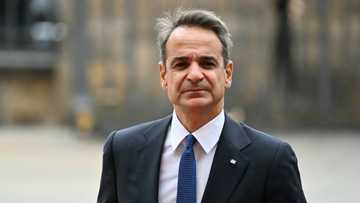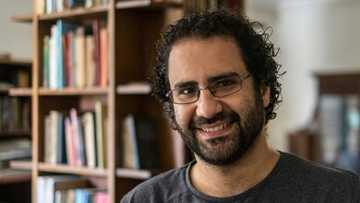Pressure mounts on Egypt to release hunger-striking dissident

Source: AFP
PAY ATTENTION: Сheck out news that is picked exactly for YOU ➡️ find the “Recommended for you” block on the home page and enjoy!
International pressure mounted Tuesday for the "immediate release" of Egyptian activist Alaa Abdel Fattah, whose family fears for his life after he escalated his hunger strike by refusing water too as COP27 opened.
After a seven-month stint during which he consumed only "100 calories a day", the 40-year-old British-Egyptian stopped drinking water on Sunday as world leaders gathered for the opening of the global climate summit in Egypt.
On Tuesday, a day after British Prime Minister Rishi Sunak and French President Emmanuel Macron met with Egypt's President Abdel Fattah al-Sisi and raised his plight, UN rights chief Volker Turk and German Chancellor Olaf Scholz demanded his release.
Abdel Fattah, currently serving a five-year sentence for "spreading false news" for reposting a Facebook post about police brutality, has been leading headlines during the UN summit, intensifying international attention on Egypt's rights record.
A key figure of the 2011 uprising that toppled longtime autocrat Hosni Mubarak, Abdel Fattah gained British citizenship this year through his UK-born mother, Laila Soueif.
'Dreadful consequences'
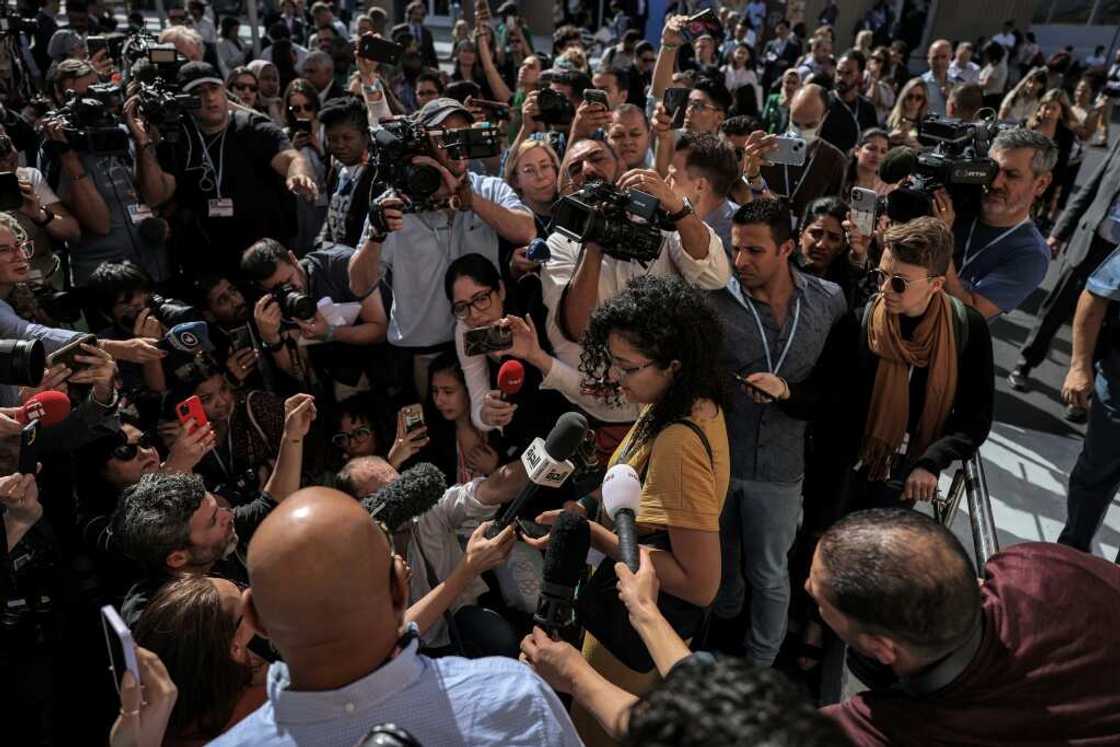
Source: AFP
PAY ATTENTION: Follow us on Instagram - get the most important news directly in your favourite app!
Soueif -- who has been camped out in front of the prison for two days in the hope of receiving a letter as proof of life, according to daughter Mona Seif -- warns her son many only have "a day or two or three at most".
In a message posted on Facebook, Soueif directed an appeal to world leaders at the COP27 summit rather than the Egyptian authorities, who she accused of already having "so much blood on their hands."
Activists at COP27 have posted prolifically on Twitter under the hashtag #FreeAlaa and several speakers have ended their speeches with the words "you have not yet been defeated" -- the title of his book, prefaced by Canadian author Naomi Klein.
Sunak said Monday that the case is "a priority", demanding it be "resolved as soon as possible."
Macron said he had received an assurance that Sisi is "committed to ensuring that (the) health of Alaa Abdel Fattah is preserved" and that the situation will be resolved "in the coming weeks and months."
German Chancellor Olaf Scholz on Tuesday said that "his release must be possible, so that this hunger strike does not end in death," adding that "we should be afraid that this could lead to dreadful consequences".
Turk said he "deeply regrets" Egypt had not released Abdel Fattah, warning that his "life is in great danger".
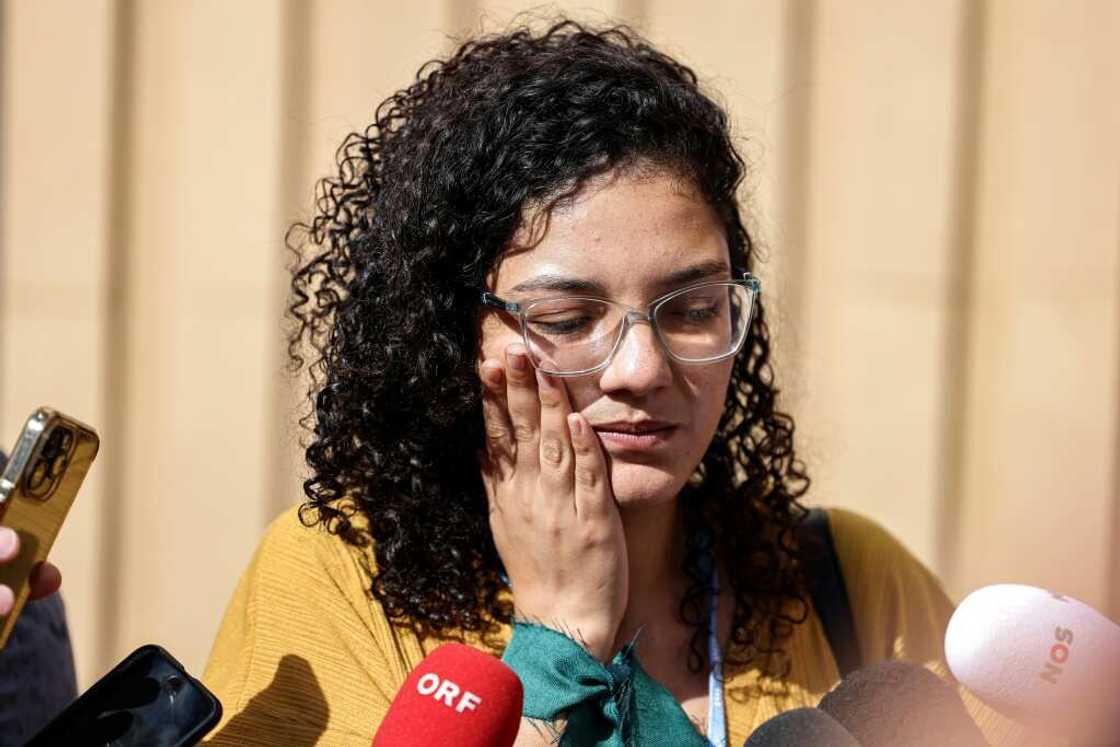
Source: AFP
On Tuesday, a press conference led by Abdel Fattah's sister Sanaa Seif -- on the sidelines of the COP27 summit in the Red Sea resort of Sharm el-Sheikh -- was disrupted by an Egyptian parliamentarian.
"We are talking about an Egyptian citizen detained for a criminal offence, he is not a political prisoner," said pro-government lawmaker Amr Darwish, who was escorted out of a COP27 hall by UN security. "Do not try to use the West against Egypt."
'Force fed'?
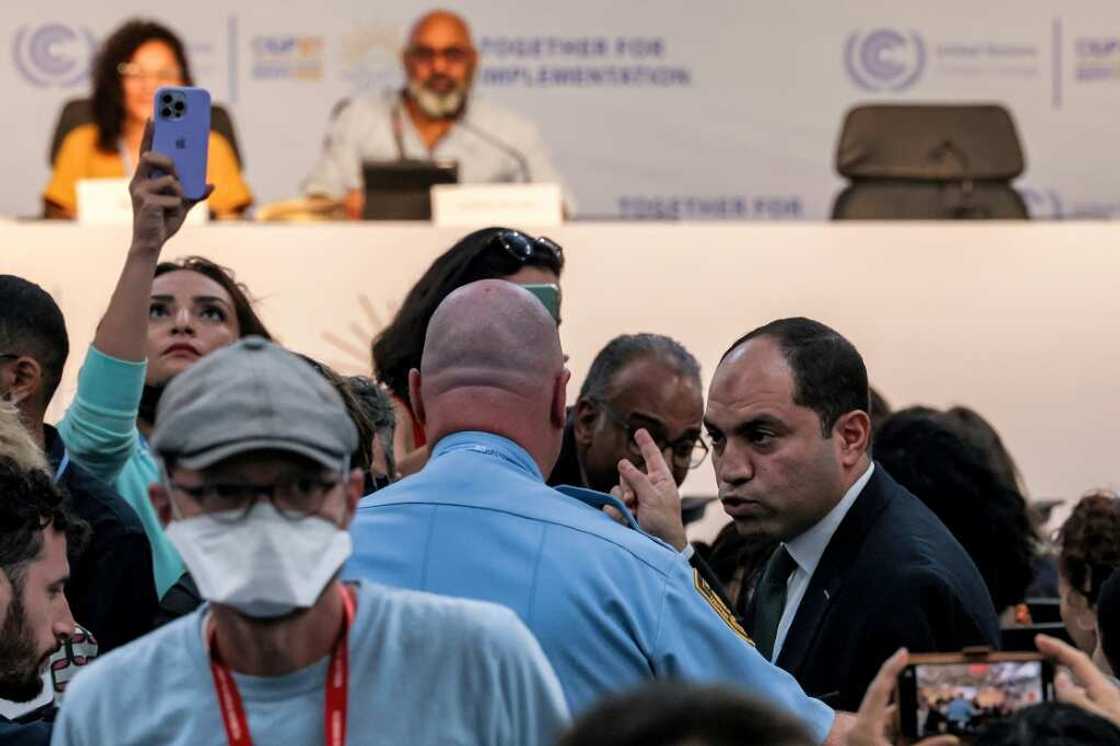
Source: AFP
Egypt's Foreign Minister Sameh Shoukry, the COP27 president, told CNBC television that Abdel Fattah -- whose dual citizenship Cairo does not recognise -- has access to "all the necessary care in prison".
Sanaa Seif said Shoukry's talk of "care" raises concerns her brother is potentially being "force fed" with intravenous drips.
"Is he handcuffed to a bed, on IVs against his will?" she said.
Cairo has faced intensifying criticism of its long deplored human rights record since it was announced as the host of the COP27 climate summit last year, a move rights groups said "rewards the repressive rule" of Sisi.
Three Egyptian journalists also continued a hunger strike for a second day, demanding "the release of all political prisoners in Egypt".
Rights groups say such prisoners number some 60,000, a claim denied by Cairo.
Abdel Fattah's continued detention comes despite Egypt having granted presidential pardons to a total of 766 political prisoners since the reactivation of a pardon policy in April this year, according to data compiled by Amnesty.
But over the same period close to double that number have been jailed for their activism, Amnesty says.
Source: AFP


